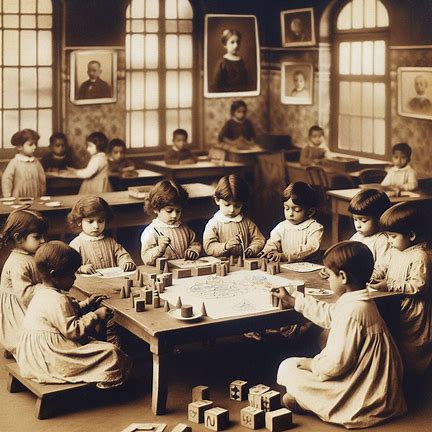Unraveling the Origins of Kindergarten: From Froebel to Play-Based Learning

Kindergarten, a concept that has become a fundamental part of early childhood education worldwide, has an interesting history that dates back to the 19th century. The term ‘kindergarten’ was coined by Friedrich Froebel, a German educator, who established the first kindergarten in 1837 in Bad Blankenburg, Germany. Froebel’s vision was to create a nurturing and playful environment where young children could grow and learn through activities that promoted their physical, mental, and social development.
Froebel’s kindergarten model was based on the idea that children learn best through self-activity and play, which he referred to as “free work.” He introduced educational materials, known as Froebel Gifts, which were designed to stimulate learning through hands-on play. These included geometric building blocks, pattern activity, and gardening, among others.
The kindergarten movement spread rapidly across Europe and to the United States, where it was adapted to local cultures and educational philosophies. In the US, the kindergarten system was further developed by educators such as Elizabeth Peabody and Margarethe Schurz, who opened the first English-speaking kindergarten in Watertown, Wisconsin, in 1856.
Throughout its history, kindergarten has evolved to incorporate various educational theories and practices. However, the core principles of learning through play, fostering creativity, and preparing children for formal schooling have remained constant. Today, kindergartens around the world continue to be a place where children embark on their educational journey, building the foundation for lifelong learning.

